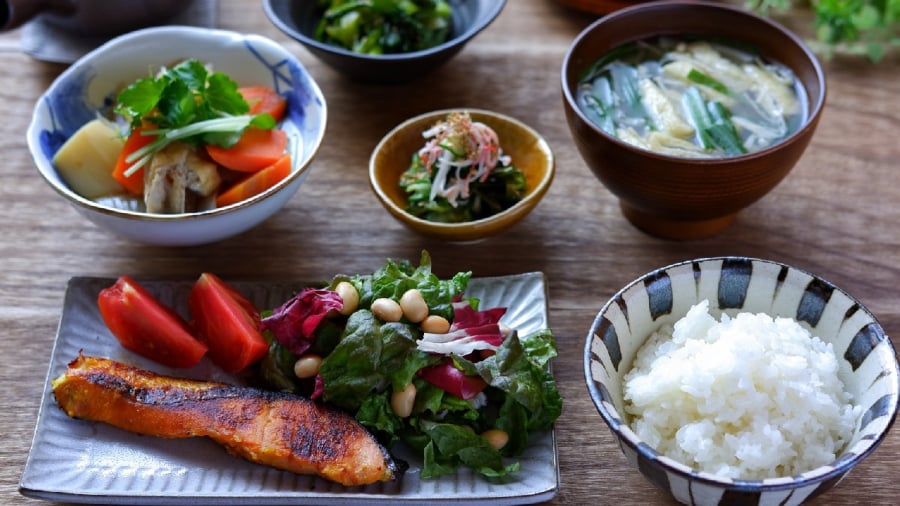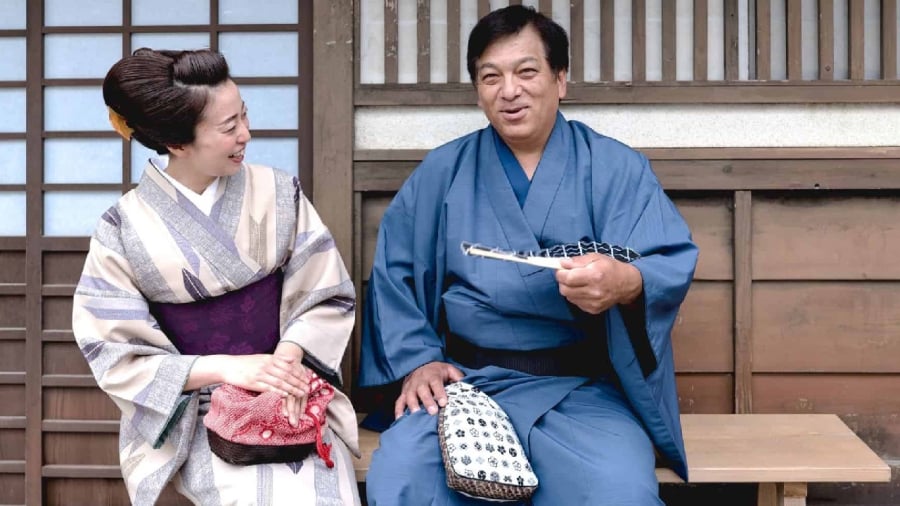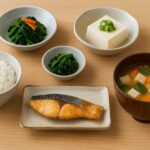According to 2021 statistics from Japan’s Ministry of Health, Labour, and Welfare, Japanese men have an average life expectancy of 81.62 years, while women average 87.74 years. The overall average life expectancy in Japan is 84.69 years, ranking the country first in the world for longevity.
Many assume that physical activity is key to a longer life. However, Japan is among the least physically active nations globally. Data from *The Lancet Global Health* ranks Japan 11th among countries with the lowest physical activity levels. Additionally, the National Health and Nutrition Survey of Japan, as reported by *Oriental Shinpo*, reveals that over 60% of Japanese people dislike exercising, primarily due to busy work schedules and household responsibilities leaving little time for workouts.
So, what contributes to the remarkable longevity of the Japanese people?
Fresh and Light Diet
The typical Japanese diet is simple and light, favoring minimally processed foods. Meals often consist of lightly boiled ingredients served with a small dipping sauce, preserving the natural flavors and freshness of the ingredients.
While fried and heavily seasoned dishes may be tempting, they are less beneficial for health. A light, simply prepared diet retains more nutrients, offering significant health benefits.

Eating in Moderation
Japanese meals often feature multiple dishes, but each is served in small portions on tiny plates. This practice helps control food intake, with most Japanese adhering to the principle of eating until 70% full.
A typical Japanese meal includes 4-6 dishes, each in moderate quantities, ensuring balanced nutrition. This approach provides sufficient energy for daily activities without overburdening the stomach, reducing the risk of obesity despite limited exercise.
High Fish Consumption
Being an island nation surrounded by vast oceans, Japan’s diet is rich in fish, shrimp, and squid, rather than red meats like beef or lamb.
White meats are high in protein and low in fat, supporting overall health and preventing conditions like high blood pressure and hyperlipidemia. Deep-sea fish, a staple in Japanese diets, are rich in phospholipids, which, according to the U.S. National Library of Medicine, promote brain health and reduce the risk of memory loss and cardiovascular diseases.
Regular Health Check-ups
Regular health check-ups are a cornerstone of Japanese healthcare. Government initiatives provide free screenings, encouraging early detection of health issues.

Walking and Cycling
Despite low exercise rates, walking and cycling are integral to Japanese daily life. Children walk to school, and adults often walk or cycle to public transit or work.
These simple activities enhance physical fitness, reduce disease risk, increase flexibility, burn calories, and contribute to longevity.






































